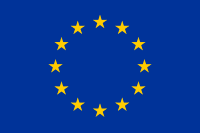European Commission Excellence Awards for Accessible Tourism Announced
Share on social media
A new call for proposals aims to support National Tourism Administrations in setting up national awards to reward best practices implemented in the tourism industry that have improved access to all visitors, particularly to people with disabilities.
 A new call for proposals aims to support National Tourism Administrations in setting up national awards to reward best practices implemented in the tourism industry that have improved access to all visitors, particularly to people with disabilities.
A new call for proposals aims to support National Tourism Administrations in setting up national awards to reward best practices implemented in the tourism industry that have improved access to all visitors, particularly to people with disabilities.
This call for proposals is published in the framework of the Preparatory action "Tourism and accessibility for all", financed by the European Parliament.
The overall purpose of this call is to" incentivise and reward European destinations which make accessibility a key priority in their promotional offer".
Specific aims of the European Excellence Award for Accessible Tourism are:
- To foster adaptation of tourism products and services to the needs of people with disabilities
- To promote the use of innovative solutions
- To improve skills and training with relation to accessibility in the tourism supply chain
- To raise awareness and promote cooperation between public and private stakeholders on the access needs of tourists
- To foster the creation of a seamless and truly accessible tourism supply chain in Europe
- To disseminate best practices and promote networking amongst destinations.
National Tourism Authorities can receive up to € 30,000 in EU co-funding, but must contribute 25% of the total costs of the award scheme themselves.
EU co-funding is available for up to 12 projects.
The Excellence Awards will take place in 2013.
Read the Call text and download the Call documents from the European Commission website
Further details
Applicants are requested to design an award scheme to be implemented at national level for the selection through an open competition of best practices, practical solutions, or excellence initiatives which facilitate the access of people with special access needs to tourism services. The practices, solutions or initiatives to consider for the award can be both private, supported by
private-public partnerships, or supported by public funds and are put in place by economic operators/SMEs in the tourism sector, alone or in cooperation with other public or private bodies.
The national awards will help identifying practices, solutions or initiatives that:
- have provided a tangible improvement of the access conditions to tourism services for people with special access needs;
- can showcase how tourism businesses have benefited from better accessibility, boosting at the same time consumers' confidence and satisfaction;
- have helped raising quality standards across the whole tourism industry as well as the quality of life in the local communities.
Award schemes at national level shall be designed around the following categories:
CATEGORY 1: Accommodation and catering. This category aims to single out practices, solutions, or initiatives which have substantially improved the access to and the use of services in these facilities (e.g. rooms, restaurants, common areas, swimming pools, gyms, wellness areas, etc…) for tourists with special access needs. These solutions can refer, for example, to improvements to the infrastructures and buildings, to the information provided before and during the stay, to the presence of dedicated/customised services, and of support services, such as information, booking, web and mobile solutions, marketing and tourism intermediation. Dedicated skills and training of staff, as well as safety aspects, can also be taken into account.
CATEGORY 2: National Heritage, Culture, Entertainment and Leisure. This category aims to single out practices, solutions and initiatives which have enhanced the enjoyment of a tourism destination by people with special access needs. The category has to be intended in the broadest scope, including for example access to heritage places, natural landscapes, landmark places, arts
and culture, but also play, sport, recreation, shopping, festivals, gastronomy, celebrations and so on. It encompasses indoor or outdoor programs, services, and amenities. Support services, such as information, booking services, marketing, ICT and mobile technologies, can also be taken into consideration in this category.
